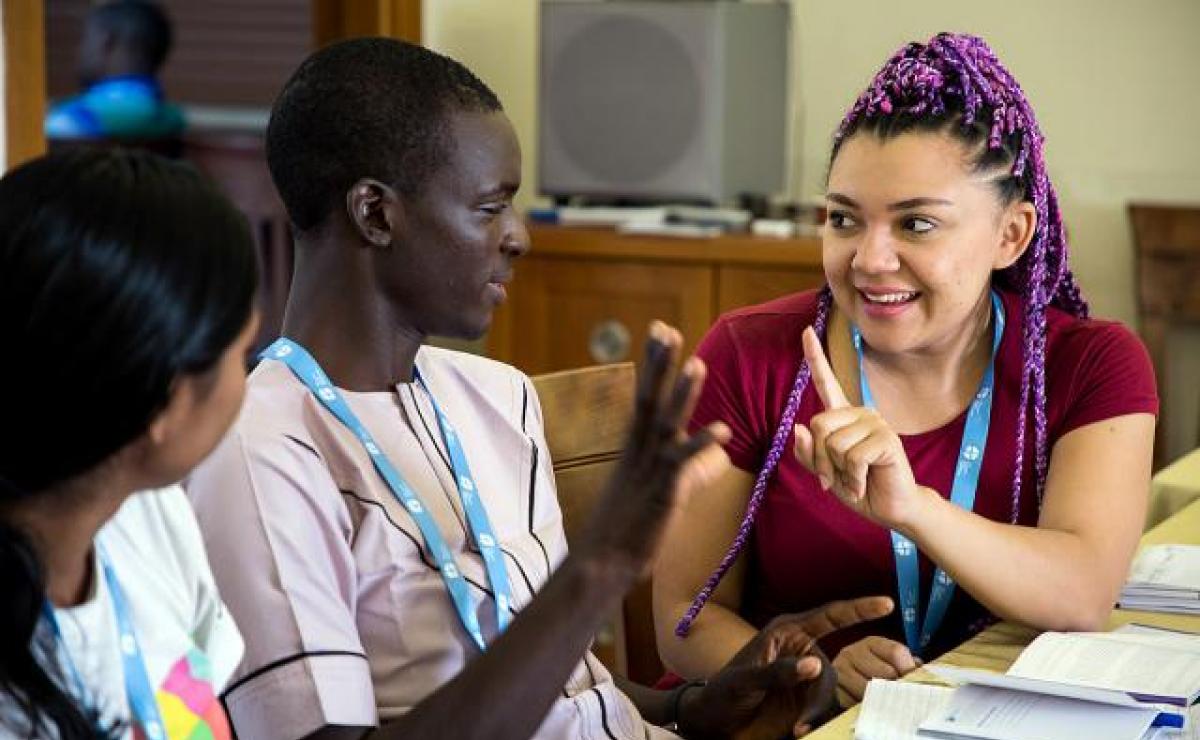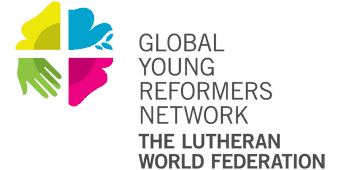Equipping youth as interfaith messengers of peace

LWF training in Jerusalem paves way for a global toolkit
(LWI) – Young people from Christian and Muslim backgrounds around the world who took part in a training on peace building skills and practice in Jerusalem, say they are going back home inspired that youth can actively engage in promoting conflict resolution and global peace.
The Lutheran World Federation (LWF) organized its first “Peace Messengers Training”, with the objective of enabling participants to plan and facilitate local trainings for sharing skills and experience in their own communities.
During the 21-28 September workshop hosted by the Evangelical Lutheran Church in Jordan and the Holy Land (ELCJHL), the participants gained skills to analyze different types of conflict and have deeper understanding about peace. They also looked at tools for advocacy, negotiation and mediation and how to combine such capacity with individual experiences, faith and cultural traditions in order to make them relevant to specific contexts. Topics discussed included equal citizenship, human rights in conflict situations, women and peace building; and Christian, Jewish and Muslim religious leaders in the Holy Land shared their experiences with the LWF peace messengers.
Similar to the Holy Land but different
Hiba Allati from the Christmas Lutheran Church in Bethlehem, said she gained not only first-hand information about the LWF communion, of which she knew very little, but also about how people from different faiths in other parts of the world live together and the issues they encounter. The sharing by her Nigerian counterparts, who like Palestinians live in a multi-faith context, was still “a very different experience” as her encounters with other Lutheran churches often include pastors, youth and other visitors mainly from Europe and North America but rarely from Africa.
“I learned that we should respect all people and their opinions, because peace is about the union of people,” said Allati. “This sentence means a lot to me, especially as people from different religions and different countries, we should share peace everywhere.”
A platform for youth in Nigeria
Explaining a multi-faith and multi ethnic background in his home country Nigeria, where people from over 400 ethnic groups practice Christianity, Islam, Judaism or African Traditional Religions among others, Isa Al-Musawi Umar said he endeavors to set up a platform where the younger generation can build together a peaceful environment in the community. The primary school teacher and Muslim peace activist said the workshop affirmed his conviction that “patience is also a tool for building peace in the society.”
He said meeting people like the ELCJHL Bishop Dr Munib A. Younan was important as he considers the Lutheran church leader as “my role model in peace building.” And, while interactions between Muslims and Christians are commonplace in Nigeria, Umar said it was a new experience for him when a Christian bishop “takes you to his Muslim neighbor so he can escort you to pray” at the Al-Aqsa Mosque in Jerusalem.
Umar said the workshop offered important learning about peace building, given that misunderstandings and disagreements over different ideas are inevitable in any family or community. He recalled Islamic teachings that “there is no segregation or superiority over each other, or opportunity to fight each other because you are created from Adam.”
Finland: Moving from declarations to action
Anna Sisko Tervahartiala from the Evangelical Lutheran Church of Finland said the training had put emphasis on young people’s involvement in issues of justice. “For me, building peace is not just about finding peace and sort of saying, peace is wonderful, but it is the action that counts.”
Tervahartiala, who works for the “Network for Religious and Traditional Peacemakers”, , wondered how youth could be supported to come together “and challenge the old structures” when it comes to the search for peace around the world. Citing the long-standing Israeli-Palestinian conflict, she said, “I know in Finland, people are afraid to say anything due to various reasons, sort of like how to turn peace into action, instead of just declarations, really bringing it to action, and start working on it.”
Tervahartiala said the experience of other Lutherans from around the world continues to strengthen her conviction that differences in religion or Christian practice should not blur the focus on the core essential issues. “I realize there is no right or wrong, but it’s just about respecting other people’s feelings; that is something that I continuously need to learn. Being Lutheran here and in Finland is not the same, but we worship the same God.”
The training was facilitated by Ms Marina Doelker, currently at the LWF with support from the Mercator Fellowship on International Affairs; ELCJHL youth pastor Rev. Ashraf Tannous; and Ms Caroline Bader, LWF Youth Secretary.
The workshop outcome will provide input to a Peace Messengers training kit intended for use by youth around the world.
